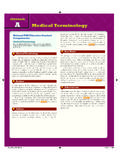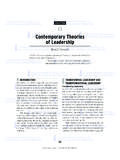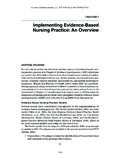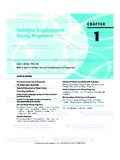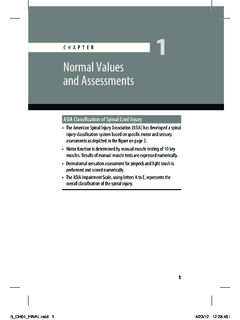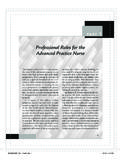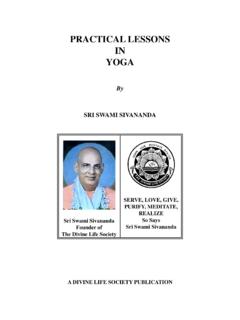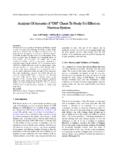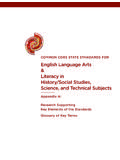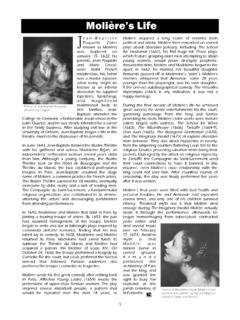Transcription of Foundations of Nursing Science - Jones & Bartlett Learning
1 PA R T 1 Foundations of Nursing Page 1 10/23/13 10:44 AM ff-446 Page 1 10/23/13 10:44 AM ff-446 /207/JB00090/work/indd/207/JB00090/work/ indd Jones & Bartlett Learning , LLC. NOT FOR SALE OR Page 2 10/23/13 10:44 AM ff-446 Page 2 10/23/13 10:44 AM ff-446 /207/JB00090/work/indd/207/JB00090/work/ indd Jones & Bartlett Learning , LLC. NOT FOR SALE OR DISTRIBUTIONP hilosophy of Science : An IntroductionE. Carol PolifroniIntroductionA philosophy of Science is a perspective a lens, a way one views the world, and, in the case of advanced practice nurses, the viewpoint the nurse acts from in every encounter with a patient, family, or group. A person s philosophy of Science cre-ates the frame on a picture a message that becomes a paradigm and a point of reference.
2 Each individual s philosophy of Science will permit some things to be seen and cause others to be blocked. It allows people to be open to some thoughts and potentially keeps them closed to others. A philosophy will deem some ideas correct, others inconsistent, and some simply wrong. While philosophy of sci-ence is not meant to be viewed as a black or white proposition, it does provide perspectives that include some ideas and thoughts and, therefore, it must neces-sarily exclude others. The important key is to ensure that the ideas and thoughts within a given philosophy remain consistent with one another, rather than being in of Science , philosophy, and philosophy of Science could all fi ll books unto themselves.
3 This chapter introduces readers to these topics. It is con-structed in the form of a survey and is designed to launch inquiry in myriad ways. The purpose is to encourage nurses to think in ways that they may not yet have discovered and to examine their assumptions and actions in their role as advanced practice nurses. If nurses leave this chapter without questioning their assumptions, the author has not done her job! One must appreciate the personal assumptions used in everyday professional life. Nurses, for example, must question their as-sumptions and reaffi rm (appreciate and understand) what it is that they Page 3 10/23/13 10:44 AM ff-446 Page 3 10/23/13 10:44 AM ff-446 /207/JB00090/work/indd/207/JB00090/work/ indd Jones & Bartlett Learning , LLC.
4 NOT FOR SALE OR DISTRIBUTIONS cienceBefore the concept of a philosophy of Science is examined in greater depth and particular philosophies of Science are specifi cally explored, it is important to begin by developing an appreciation of the meaning of the terms Science and philosophy. Science , which comes from the Latin word scientia, meaning knowl-edge, traditionally refers to both processes and the outcomes of processes, such as general laws and observations. General laws are the laws of nature that guide physical life, such as the laws of gravity, energy, and motion. Generators of Science use these laws in a systematic way to create a body of knowledge about a specifi c topic.
5 The culmination of using the scientifi c method (systematic process) provides a set of data (evidence) supported by propositions about an area of study (Boyd, Gasper, & Trout, 1991).Natural Hard SciencesAs an outcome, Science is a body of knowledge. Physics, mathematics, and chem-istry are three examples of scientifi c disciplines composed of unique bodies of knowledge. These sciences are often classifi ed as natural sciences because they employ the general laws of nature and begin with the physical notion of the world. These natural sciences (which are also sometimes referred to as the physical sciences ) are also known as pure sciences . Pure, in this context, means a unique body of knowledge.
6 A pure Science is independent of others; it is able to stand alone, and it may be developed and furthered for the abstract cause of the knowledge itself. Pure Science is not pursued for its utility or and pure sciences are based on the assumption that reality is objec-tive, rather than subjective. As a result of this objectivity, natural Science is con-sistent in other words, it is reproducible and reliable. Natural Science further encompasses the assumption that human beings have the capacity to be accurate in their scientists believe that explanations (obtained using the method de-scribed later in this chapter) are present within the natural or real world.
7 As a consequence, explanations are reasonable, constant and consistent, accurate, objective, discoverable, and understandable. Owing to its basis in objectivity, natural Science is predicated on the belief that there is an external world structure independent of self that is grounded in physical sciences are referred to as hard Science . In recent years, quantum physicists have begun to integrate the role of the observer into their discipline, which is still categorized as a hard Science . This conundrum will be addressed as part of the discussion of complexity Science found at the end of this of the physical sciences present in health care include the biophysi-cal and biochemical processes related to diabetes, cardiovascular disease, and cancer.
8 Using the physical sciences in health care involves assuming a disease 4 Chapter 1 Philosophy of Science : An Page 4 10/23/13 10:44 AM ff-446 Page 4 10/23/13 10:44 AM ff-446 /207/JB00090/work/indd/207/JB00090/work/ indd Jones & Bartlett Learning , LLC. NOT FOR SALE OR DISTRIBUTION focus, rather than a person focus. The Science is about diagnosis, treatment, and outcomes of treatment. It is about side effects and it is about Applied SciencesSociology, psychology, and anthropology are three examples of applied sciences . Applied sciences have their own unique body of knowledge, albeit a different one than is found in the natural sciences category.
9 They are known as applied sciences because the focus is on the application of related knowledge, usually to meet some human need (and not to generate knowledge for the sake of knowledge). Additionally, the word applied is used to convey the understanding that, in the development of their own knowledge, applied scientists use the knowledge from the pure sciences . Sociologists, who study people and behavior, rely on and use the natural sciences and their inherent assumptions to further their work. Thus sociology is an applied Science . Mathematicians and physicists do not use psychology or sociology to add knowledge to their scientifi c disciplines, because mathematics and physics are pure sciences , whereas psychology and sociology are applied applied scientists use what they deem accurate and appropriate from the natural sciences , they do not subscribe to the rigid belief of objectivity and reliability.
10 In applied Science , the focus is on human beings and the utility of the Science to them and for them. Consequently, objectivity, observation, and re-producibility are diminished or perhaps not present at all. Therefore, the applied sciences are sometimes referred to as soft in the distinction between hard and soft Science are certain assump-tions and beliefs. Hard scientists assume objectivity, whereas soft scientists do not. Hard scientists operate from a belief in an external world structure inde-pendent of self, whereas soft scientists do not. The hard sciences are grounded in a worldview based on reliability and consistency as contrasted with the soft sciences , which allow for individuality and originality.
